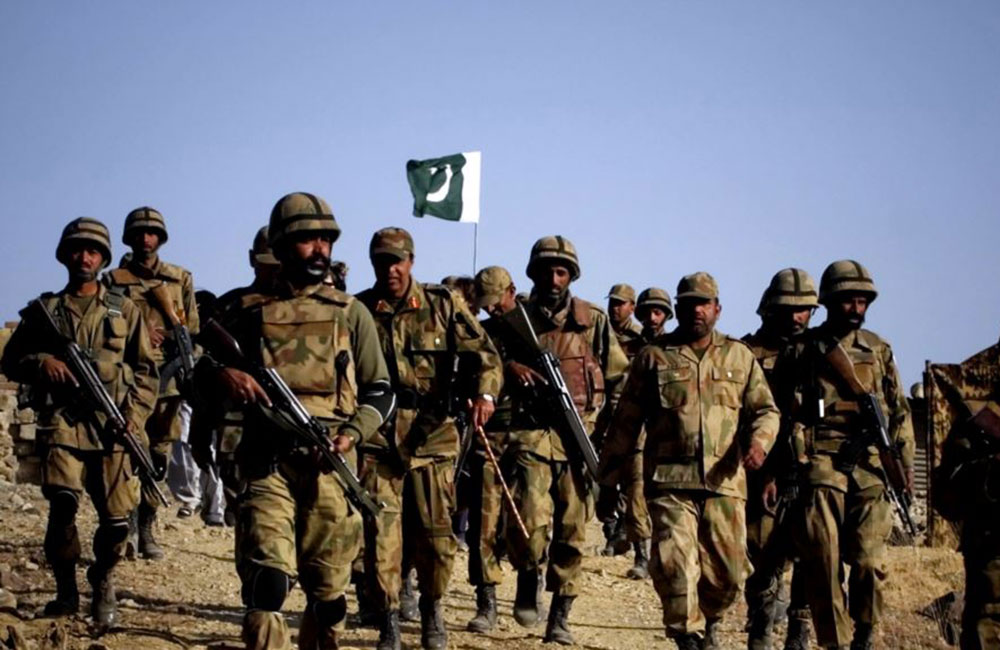Pakistan's military has warned the United States against the possibility of taking unilateral action against armed groups on its soil, in its strongest response yet to tensions between the two allies.
Speaking to journalists in the garrison city of Rawalpindi on Thursday, Pakistan military spokesman Major-General Asif Ghafoor rejected the notion that Pakistan is not doing enough to fight armed groups.
"We have sacrificed a lot. We have paid a huge price both in blood and treasure," Ghafoor said. "We have done enough and we cannot do any more for anyone."
He said Pakistan would continue to fight armed groups in the region in Pakistan's self-interest, rather than at the behest of other countries.
"Had we not supported [the US], al-Qaeda would not have been defeated," he said.
Since 2007, Pakistan has been battling armed groups, including the Tehreek-e-Taliban Pakistan (TTP), al-Qaeda and their allies, who have been seeking to impose a strict version of Islam on the country. The military has launched multiple military operations to regain territory where the groups' fighters once held sway.
Violence has dropped since the launch of the latest operation in 2014, but sporadic, high-casualty attacks continue to occur. Earlier this month, at least nine people were killed in a suicide bombing on a church in the southwestern city of Quetta.
The US has often called on Pakistan to "do more" in its fight against armed groups, accusing it of selectively targeting armed groups and not taking action against the Afghan Taliban and the Haqqani Network, both of whom target US and Afghan forces in neighbouring Afghanistan.
US criticism
On Wednesday, US Secretary of State Rex Tillerson repeated the call for Pakistan to take on groups allegedly offered safe haven on its soil.
"We are prepared to partner with Pakistan to defeat terrorist organisations seeking safe havens, but Pakistan must demonstrate its desire to partner with us," he wrote in an op-ed for the New York Times.
Tillerson's message echoed US President Donald Trump's words when he announced a new South Asia strategy in August, singling out Pakistan for criticism. Since then, a series of high-level contacts between the two governments have taken place, although no breakthrough achievements have been announced.
During his press conference on Thursday, Ghafoor linked the difficulty of acting against armed groups such as the Haqqani Network to the number of Afghan refugees resident in Pakistan.
The country is home to more than 2.7 million Afghan refugees, by the military's figures, many of whom have lived in Pakistan for more than three decades.
Source : Al Jazeera

Leave your comments
Login to post a comment
Post comment as a guest